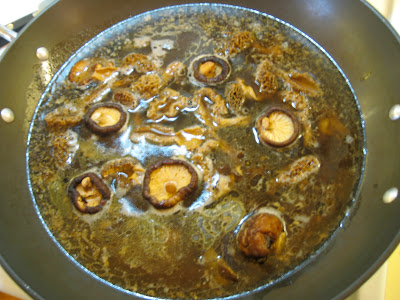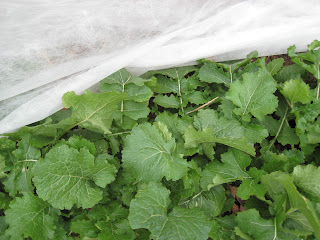That made me happy. Our extended family has come together here to give special thanks for many years. It's a tradition I wasn't able to carry on this year.
He went on, "I've always wanted to have a wild Thanksgiving."
Fine with me.
What he meant was wild venison tenderloin harvested from the Missouri woods. Holmes kept a careful eye on Oz as he carved it hot off the grill.
He also meant wild pheasants from his hunting trip to Nebraska. He used a recipe from Antoine's in New Orleans circa 1924. For the sauce he brought morel mushrooms he gathered and dried last spring along with some shitakis.
He added some madeira and, later, cream before reducing the sauce.
Holden gathered salad greens from the garden. They're not really wild, although some are self-seeded, but they were freshly picked, which makes them close to wild.
Holmes was determined to serve the pheasant under glass, a la Antoine's, but it didn't quite fit.
Eleven of us stuffed ourselves with wild and not so wild food, including dressing, mashed potatoes, cranberry sauce, petite pois, and whole wheat rolls.
The pumpkin pie found the scene amusing...for a while.
Everyone went home about 7:30 that evening, after doing all the work.
Many thanks to my family for carrying on the tradition. It was a wild and wonderful day.




















